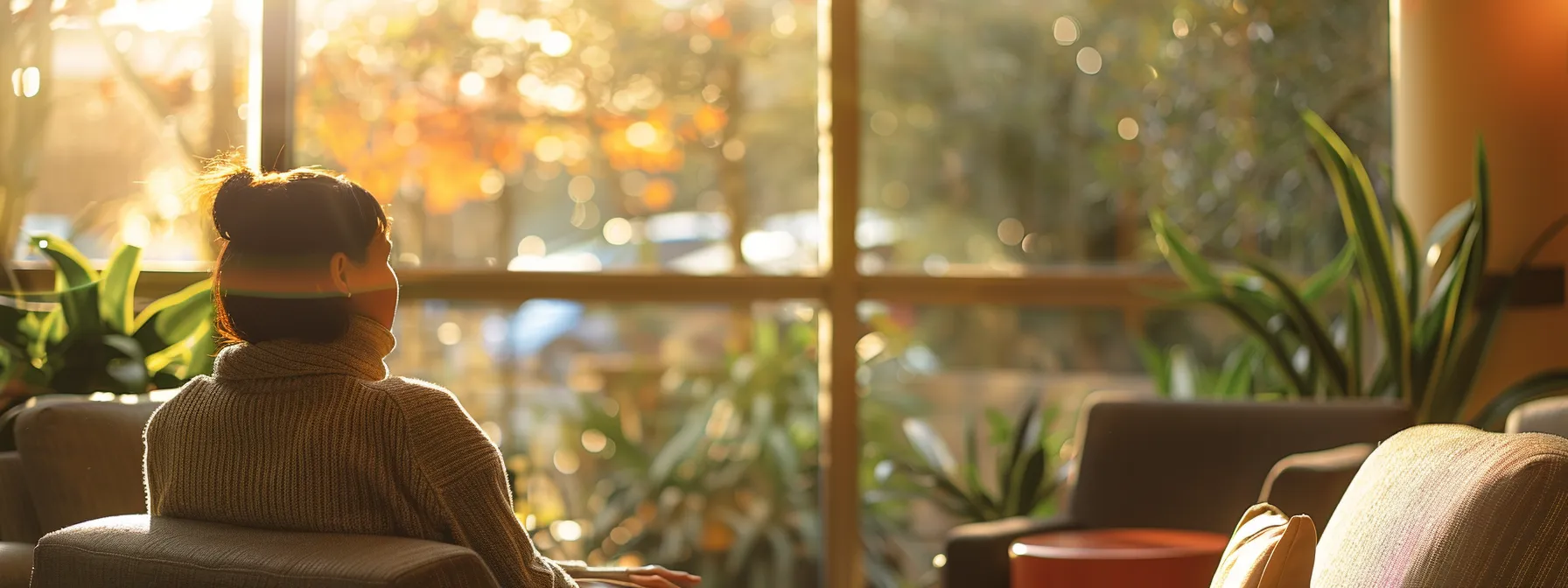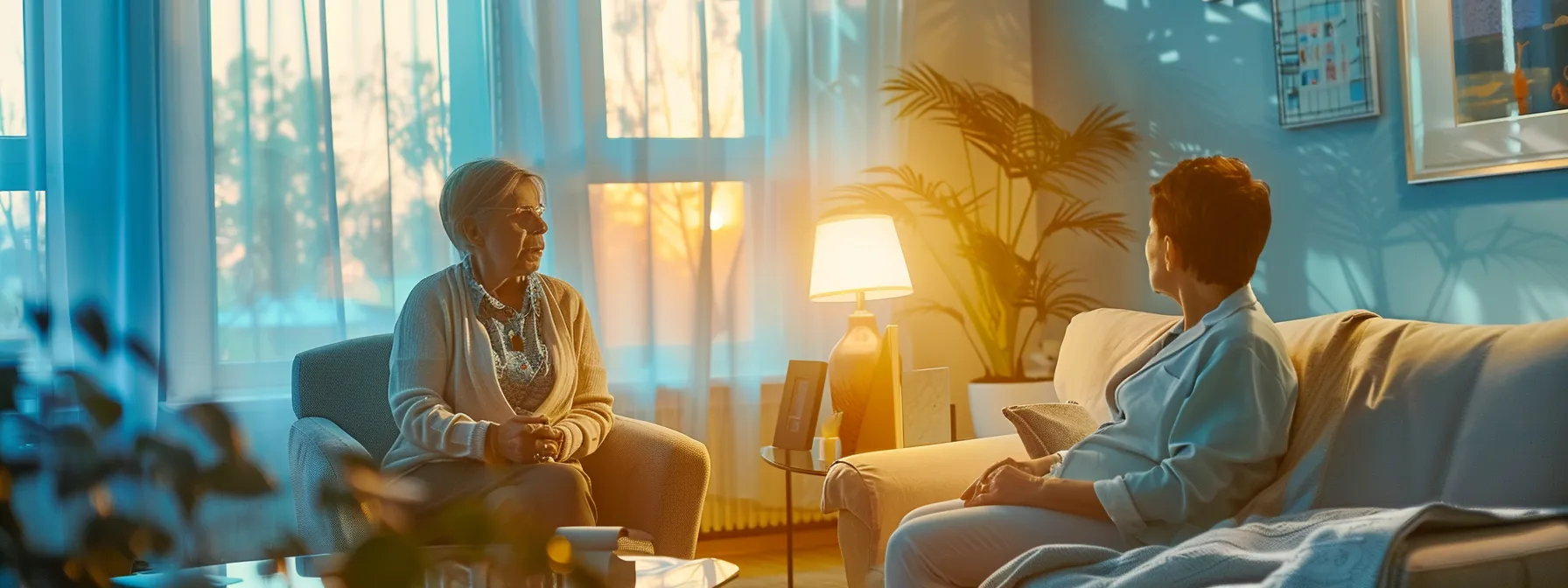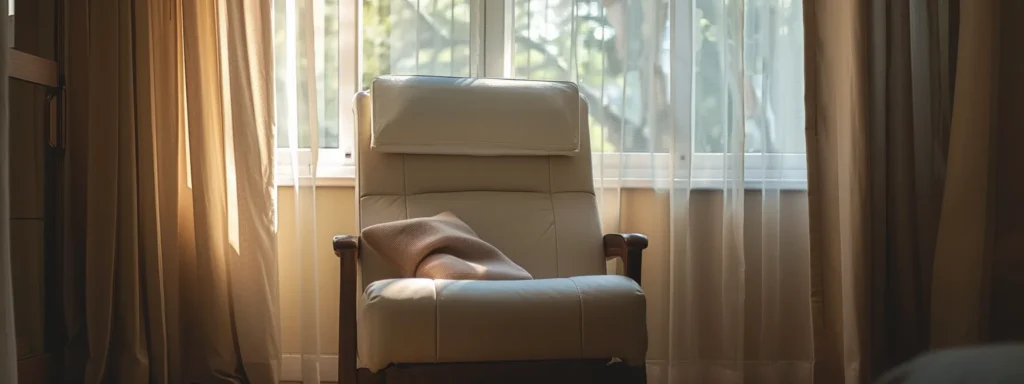Effective Approaches to Treat Seasonal Affective Disorder in New England
Are you struggling with low mood as winter approaches in New England? This post examines evidence-based therapies and local resources for coping with winter-related depression. It outlines effective treatments for Seasonal Affective Disorder, discusses the benefits of light therapy, and offers lifestyle changes to ease symptoms. Readers will gain clear, actionable steps to address seasonal depression and improve overall mental health during the colder months.

Key Takeaways
- seasonal affective disorder treatment combines light therapy, medication, and behavioral adjustments
- local weather variations influence mood and daily routines
- diet, exercise, and mindfulness support mental stability
- personalized treatment plans address individual symptoms effectively
- community resources and support groups enhance mental wellness
Understanding Seasonal Affective Disorder in New England

Seasonal Affective Disorder (SAD) in New England affects mood, weight, and overall daily routines. This section defines SAD, highlights its symptoms including mood shifts and disruptions affecting pain management, and links its seasonal patterns to local weather variations. Key treatments like electroconvulsive therapy and medicare options are also addressed. Patients may need to verify-insurance to access these treatments.
Defining Seasonal Affective Disorder
Seasonal Affective Disorder is defined as a mood disorder closely linked to changes in natural light exposure that affects an individual’s neurotransmitter balance and biology. Recent studies indicate that fluctuations in environmental wavelength and reduced exposure to sad light can alter brain functions, underscoring the value of informed support from a health professional. Understanding the disorder’s distinct symptoms provides a basis for applying targeted treatment methods.
This condition is characterized by shifts in mood and behavioral patterns that some experts attribute to changes in the body’s biochemical processes. Evidence shows that careful monitoring of neurotransmitter activity and periodic light therapy administered under the supervision of a health professional can prove beneficial in addressing its biological underpinnings. The approach fosters improved daily function and wellness among those affected.
Symptoms and Impact on Daily Life
Patients with Seasonal Affective Disorder often report disruptions in their daily routines, with changes in stress management techniques proving necessary to counteract low mood and energy levels. Research indicates that adjustments in food intake, particularly regarding carbohydrate-rich meals, may help stabilize energy levels and reduce the impact of low temperatures and reduced heat exposure on daily activities.
The disorder frequently interferes with regular activities as individuals experience fatigue and difficulty in maintaining consistent routines. Clinical observations highlight that incorporating stress management practices and monitoring dietary choices can aid in mitigating the adverse effects on daily life, ensuring that treatment strategies remain practical and supportive.
Seasonal Patterns and Weather Influence
In New England, seasonal patterns and weather influence the progression of mood and overall health by affecting the brain’s serotonin reuptake process and the natural availability of vitamin sources. Local experts recommend that a careful evaluation by professionals may provide improved insight into recognizing changes within each hour of daylight during condensed sunlight periods.
Clinical observations indicate that low light conditions contribute to a decreasing feeling of well-being, which may demand adjustments in therapeutic approaches. Experts suggest that tracking these environmental shifts during periodic evaluations can offer practical guidance for timely interventions and optimized treatment strategies.
Effective Treatments for Seasonal Affective Disorder

This section reviews treatment options addressing mood issues with bupropion, grief management, and diet adjustments. It also covers personalized plans tailored to individual needs and reviews psychotherapy techniques, including considerations like environmental brightness changes. For further details, inquiries can be sent via email, ensuring practical insights and care remain central to the treatment approach.
Overview of Treatment Options
The treatment options for Seasonal Affective Disorder in New England include personalized approaches that utilize moodozi light therapy, adjusting the angle of light exposure, and subtle adjustments in color settings to impact depression symptoms effectively. Practitioners provide actionable insights based on observations shared on twitter and clinical evaluations to address specific needs.
Practitioners recommend a combination of pharmacological and behavioral interventions that target neurotransmitter balance and daily routine improvements:
| Treatment Method | Key Feature |
|---|---|
| Moodozi Light Therapy | Adjusting angle and color spectrum |
| Pharmacological Interventions | Managing depression symptoms |
| Behavioral Strategies | Incorporating routine changes |
| Social Engagement | Insights from twitter discussions |
This integrated approach offers practical benefits that help patients establish a consistent plan to manage their condition effectively.
Importance of Personalized Treatment Plans
Personalized treatment plans for Seasonal Affective Disorder in New England are designed to address individual symptoms and lifestyle requirements. A tailored approach considers variables such as physical activity routines and preferences for practices like yoga, ensuring that each patient receives care that is unique and practical:
| Aspect | Benefit |
|---|---|
| News Updates | Staying informed on local and united states health trends |
| Physical Activity | Incorporating exercise to boost mood and energy |
| Yoga | Integrating stress-reducing routines |
| Schizophrenia Awareness | Enhancing overall mental health management |
Individualized plans enable practitioners to build on first-hand expertise and practical examples that resonate well with patients facing daily challenges. This bespoke method aids in reducing symptoms of Seasonal Affective Disorder while encouraging consistent integration of beneficial news and physical activity trends from the united states, thereby improving overall well-being.
Exploring Psychotherapy Techniques
Psychotherapy techniques provide a structured approach to addressing brain imbalances linked with seasonal distress and incorporate exercise routines and moodozi sessions to complement treatment methods; experts emphasize that regulated exposure to natural radiation enhances treatment outcomes and supports cognitive stability:
- Tailored psychotherapy sessions
- Integrated exercise routines
- Monitored natural radiation exposure
- Optimized moodozi applications
- Targeted advertising of local support services
Clinical insights underline the value of psychotherapy to refine treatment adjustments, ensuring that changes in behavioral patterns are effectively managed while maintaining daily stability; professionals advocate for a coordinated approach that uplifts brain function and mitigates seasonal challenges.
The Role of Light Therapy for Seasonal Affective Disorder

Light therapy uses specific optics to adjust brain functions, assisting in coping, meditation, and mood affect management while reducing alcohol reliance. The discussion covers how light therapy works, its benefits, and guidance on selecting the right device for a balanced treatment approach.
How Light Therapy Works
Light therapy functions by exposing the patient to controlled brightness from a therapy lamp, which influences brain chemicals associated with mood regulation and appetite management. This method is supported by clinical insights that link regulated light exposure with improved energy and better mental stability, a practice that also plays a role in suicide prevention when other interventions fall short.
The sun lamp for seasonal depression provides a specific light spectrum that helps to adjust the body’s internal clock and reduce symptoms of seasonal mood disorders. Experts note that consistent use of a therapy lamp under professional supervision can result in notable improvements in mood and overall well-being, offering a reliable tool for patients seeking relief from winter-related depression.
Benefits of Light Therapy
Light therapy is recognized as a practical method to address winter-related depression in New England by helping to regulate mood and stabilize daily routines. Evidence from joint commission reviews supports the use of a sad lamp that emits controlled ultraviolet rays and fluorescence designed to mimic natural sunlight and act as an antidepressant with measurable benefits.
Clinical observations have shown that regular light therapy sessions assist in improving cognitive function and reducing fatigue among patients. The use of a sad lamp under professional guidance, combined with targeted ultraviolet exposure and balanced fluorescence, can deliver antidepressant effects while offering a structured treatment approach for seasonal mood changes.
Selecting the Right Light Therapy Device
Choosing the right light therapy device involves evaluating features such as brightness levels and adjustable settings to suit individual treatment needs. Experts at mclean hospital and professionals in couples therapy emphasize the importance of selecting devices that are safe and effective, ensuring that users do not experience any negative impact on their overall health or mood.
Practitioners advise that potential users, including a parent concerned with violence in the community, carefully review product specifications and user experiences to determine suitability. This practical approach supports informed decision-making by underlining the value of expert recommendations and first-hand observations from clinical settings.
Seasonal Depression Therapy Approaches in Massachusetts

This section details practical approaches and resources available for managing seasonal affective disorder. It covers community support, innovative devices, integrative therapies, and professional guidance, including lithium treatments and strategies for hypersomnia. Residents can gain insights into accessible care and support groups designed to improve overall well-being.
Available Resources for Residents
Residents in Massachusetts can find a variety of resources for addressing seasonal affective disorder, including local support groups, targeted therapy sessions, and community wellness programs that focus on managing emotion and improving sleep. These programs offer practical solutions by combining therapy techniques with insights from experts who have worked extensively in regions like california to address similar challenges:
| Resource | Benefit |
|---|---|
| Support Groups | Shared experiences help ease irritation and manage emotion |
| Therapy Sessions | Structured treatment that enhances sleep and also overall well-being |
| Community Programs | Local initiatives that integrate proven therapy approaches |
Local health centers and mental health clinics offer customized treatment options that blend professional therapy with lifestyle adjustments for better sleep quality and reduced irritation. Experts emphasize that such comprehensive programs not only improve emotion regulation but also integrate practices inspired by successful models from california, ensuring residents encounter diverse and effective therapy strategies.
Integrative Therapies and Support Groups
Massachusetts professionals advocate for integrative therapies and support groups that incorporate a depression lamp regimen to balance mood and cognition while addressing common symptoms like headache and guilt. The approach often includes structured sessions held near sunrise to encourage healthy circadian rhythms and also to offer practical steps for managing daily challenges:
- Personalized depression lamp routines
- Group discussions focused on emotional support
- Guided activities to improve cognition
Therapy sessions combine evidence-based practices with shared experiences from support groups, providing actionable insights that help individuals overcome headache discomfort and feelings of guilt. This integrative approach, supported by expert recommendations, empowers participants to build a consistent routine that fosters overall wellness and also adaptive coping strategies.
Professional Help and Where to Find It
Professional help is essential for managing seasonal affective disorder in Massachusetts, especially when addressing the complexities of the disease with guidance from experts in neuroscience. Clinics offer solutions such as tailored sunlight exposure plans and seasonal depression lamp therapies that help reduce the risk associated with mood fluctuations during winter.
Residents can access specialized mental health services that provide clear action steps based on advanced neuroscience and clinical evaluations. Local providers ensure that treatment regimens, including effective seasonal depression lamp interventions, are well-suited to individual needs and help manage the disease with practical insights.
Lifestyle Changes to Manage Seasonal Affective Disorder

Practical lifestyle changes address physical activity, nutrition’s role in mood enhancement, and mindfulness techniques to manage pain, daylight exposure issues, the blues, foster care challenges, and fatigue. This section offers clear insights into incorporating exercise, balanced diets, and stress reduction strategies for improved daily routines and also overall well-being.
Incorporating Physical Activity
The integration of regular exercise routines provides pleasure through improved mood and energy, while engaging with natural light to help boost lux levels during outdoor activities. This practice offers a practical solution for those who struggle with the effects of seasonal shifts in New England:
| Aspect | Benefit |
|---|---|
| Physical Activity | Enhanced mood and increased energy |
| Exposure to Light | Improved lux levels and better control over seasonal changes |
| Expert Guidance | Informed support from centers like mass general brigham |
Practitioners encourage incorporating structured exercise programs that combine both indoor and outdoor activities, creating consistent exposure to light. Strategies from mass general brigham stress the importance of personalizing routines to leverage natural energy and provide steady support for managing seasonal affective disorder.
Nutrition’s Role in Mood Enhancement
Nutrition plays a vital role in mood improvement for individuals facing seasonal mood challenges in New England, as nutritional choices can boost overall motivation and support mental well-being. Practical strategies adopted by a local hospital and clinic include balancing nutrient-dense meals that help regulate energy and also reduce compulsive behavior during rigorous daily routines:
- Incorporating lean proteins
- Choosing whole grains
- Adding fresh fruits and vegetables
- Ensuring proper hydration
Experts emphasize that specific food plans geared toward supporting mental health have shown positive outcomes among various groups, including the lgbtq community, by stabilizing mood and creating a framework for healthy living. These nutritional interventions have received favorable feedback from clinical environments due to their consistent delivery of actionable insights and clear improvement in individual routines.
Mindfulness and Stress Reduction Techniques
The use of mindfulness practices and stress reduction techniques offers practical information for individuals managing Seasonal Affective Disorder in New England, particularly for residents in Boston seeking effective treatments. This approach supports the natural circadian rhythm while providing actionable insights and also safety options, such as dialing 988 for immediate support when needed:
| Technique | Benefit |
|---|---|
| Mindfulness Meditation | Improves focus and emotional balance |
| Deep Breathing Exercises | Reduces stress and stabilizes circadian rhythm |
| Body Scan | Enhances self-awareness and supports overall treatments |
Practitioners note that integrating these techniques into daily routines delivers clear value and contributes to sustained mental stability, particularly in busy urban centers like Boston where timely information and reliable treatments are crucial. Professionals emphasize that consistent practice not only alleviates seasonal mood changes but also reinforces a structured approach to personal well-being.
When to Seek Professional Help for Seasonal Affective Disorder

Recognizing serious symptoms, building a support network, and contacting mental health professionals in New England are key steps for effective management. Patients may benefit from using lights for seasonal affective disorder, exploring drug options, and safe exposure practices while verifying-insurance details to access quality care and support.
Recognizing Serious Symptoms
Recognizing serious symptoms requires careful attention to signs such as unexplained weight gain, persistent low mood, and difficulties managing energy levels. Patients may notice shifts similar to those observed on linkedin profiles discussing intermittent health challenges or instances where low vitamin d levels appear alongside skin cancer screenings, suggesting the need for specialist advice:
| Symptom | Observation | Consideration |
|---|---|---|
| Weight Gain | Sudden, unexplained increase in body mass | Monitor nutritional intake and consult a professional |
| Low Mood | Prolonged periods of depression and fatigue | Assess vitamin D levels and consider therapy options |
| Energy Fluctuations | Noticeable changes in daily energy | Review overall health with insights from treatment of bipolar disorder experts |
Experts in New England advise that individuals should consult mental health professionals when symptoms intensify and interfere with daily life. They offer actionable insights and practical advice, emphasizing that early professional guidance can help address these issues effectively, as seen in discussions on linkedin and other support networks.
Building a Support Network
Establishing a wide-ranging support network can significantly aid those managing seasonal affective disorder, particularly when symptoms include irritability and signs of dysthymia. Community groups and medical professionals, including those who specialize in fluoxetine management, can serve to monitor the internal clock and provide guidance for eye-opening treatment adjustments.
Health practitioners emphasize the integration of reliable networks for addressing persistent challenges and also triggering actionable solutions:
| Support Element | Role |
|---|---|
| Peer Groups | Offer shared experiences and coping strategies |
| Medical Oversight | Manage medication like fluoxetine and monitor overall health |
| Structured Routines | Help set a consistent clock for daily activities |
| Professional Guidance | Aid in recognizing symptoms such as irritability and dysthymia |
| Support Hotlines | Provide immediate assistance and advice, keeping an eye on crisis intervention |
Contacting Mental Health Professionals in New England
The process of contacting mental health professionals in New England involves straightforward steps that integrate seasonal affective disorder light measures with effective medicine options. This approach, combined with light therapy for sad treatment and an emphasis on health equity, ensures that each cell of the care model is aligned with patient needs.
Experts advise patients to seek guidance when symptoms persist, and also they recommend clear communication with local clinics that specialize in seasonal affective disorder light therapies; the following practical steps can serve as a guide:
- Schedule an initial assessment with a qualified provider
- Discuss options for light therapy for sad treatments
- Verify the clinic’s commitment to health equity practices
Conclusion
Effective treatment strategies in New England directly address mood shifts, fatigue, and routine disruptions caused by seasonal depressive episodes. Evidence-based therapies, including light therapy, pharmacological interventions, and tailored psychotherapy techniques, deliver practical benefits. Personalized plans and lifestyle adaptations further support improved emotional balance and overall well-being. This integrated approach empowers individuals to regain control over their daily lives and also maintain lasting mental stability.





